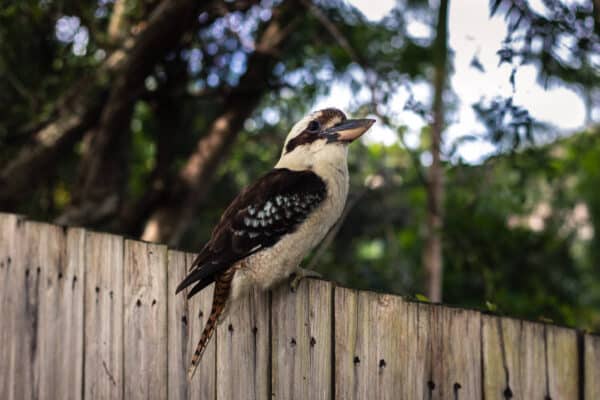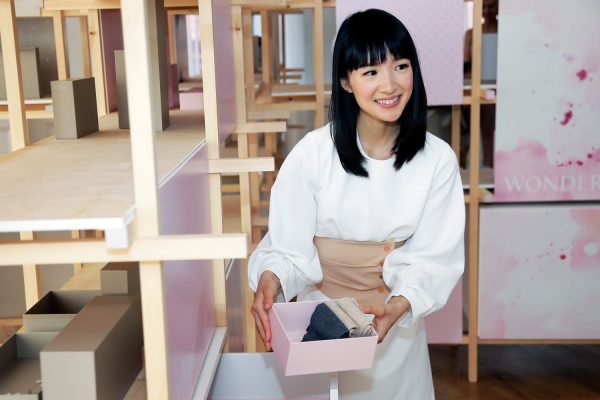Ever wondered how to become an ethical fashion or lifestyle blogger? It’s much the same as mainstream fashion blogging but with a extra few things you need to consider.
I’ve worked in this space for just over two years. One year as the owner of an ethical online store and the past year as a blogger and creative. It’s been hard but amazing and I’ve loved almost every day of growing my business.
I receive a lot of emails about how to become an ethical fashion and lifestyle blogger and find I’m just copying and pasting the same answers every time so instead, I’ll share them here so everyone can benefit.

"There's room enough for everyone to thrive but no room for treading on others to get to where you want. We are a community and we support each other."
Be sure of what you want from your blog. Is it a creative outlet, or are you going into this to grow a business?
From the very start The Green Hub was a business and I’ve always treated it as such. I’ve set goals, been consistent in creating content and set boundaries about working for free.
You need to decide if you are happy to blog as a hobby and accept the occasional free product or if you want to make it your business which supports you financially.
Before I go on I should mention that if you want to become an ethical blogger for Insta fame and to get rich, you should stop before you start. You will probably receive neither.
But, if you want to get into the game to build a small business which aligns with your values and create positive change by sharing the sustainability message. Then keep reading.
The technical stuff
The boring but important information to help you get started. This is the foundation of your new business so it’s important to get it right the first time. It’s much easier to invest the time setting up your platform now than trying to change it later when you realise its not the best option for you.
Business name
First you need to pick a name for your business.
Not many people know this but The Green Hub was not my first choice. I spent two weeks coming up with names only to find the domain or ABN was not available. I ‘settled’ for The Green Hub, registered as a business with the government THEN found out the domain was taken. I was gutted.
And that my friends is why our domain has ‘online’ tacked onto the end. It’s for website purposes only, it’s not actually our full name. Despite being a fall back name I now love the name and couldn’t imagine being called anything else!
Love your business name, it’s very difficult to change it later.
Domain, hosting & wordpress
I use WordPress. It’s hands down the best and most flexible platform for starting a blog.
There are many different ways you can set up your WordPress account, domain and hosting but to keep it as simple as possible, I recommend using Bluehost for all three.
Head over to Bluehost here to register your domain name. Bluehost’s basic price is $3.95 a month.
Once you’ve set up your domain and hosting select the simple “one-click” install of WordPress through Bluehost.
If you get stuck at any point, Bluehost have a “live chat” function to help you through the setup. They also answer emails within the day.
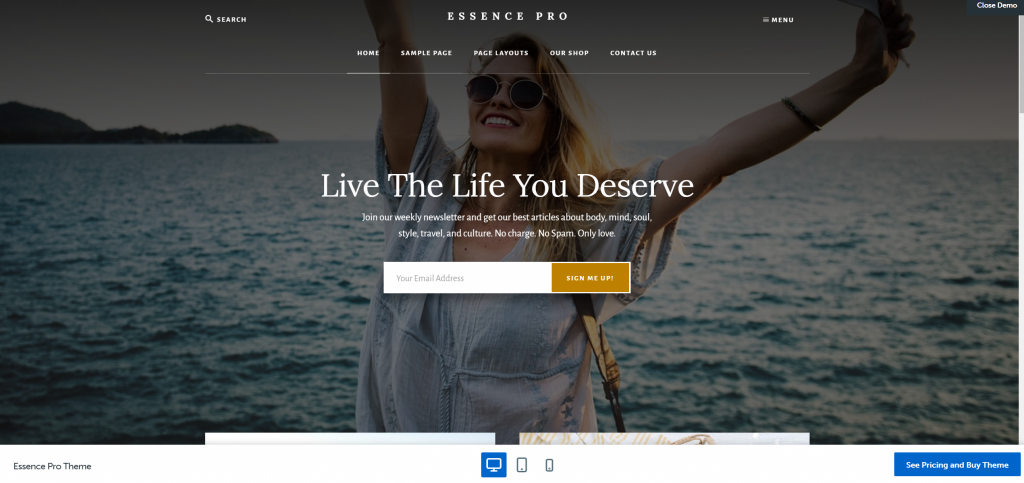
Website Design
Now the fun part!
The Green Hub was designed and custom built by the incredible team at Pixel Palace. I was moving from a store into a publication and needed a complete overhaul.
But if you don’t want to invest money in your design right away, creating one yourself is affordable and very easy to do. You don’t need to be a designer or even need to know how to code.
I built my first blog using the StudioPress their Genesis Framework and one of their beautiful Child Themes.
There are two main benefits here
1. Using the StudioPress framework and themes means that you can build a beautiful, easy to manage website that looks custom made. Content is only half your blog. If your page is poorly designed and difficult to navigate, your readers won’t want to stick around.
2. If I need help or run into problems you open a support ticket with StudioPress, start a thread in the support forums, or a quick Google search will show you tons of video tutorials. Also if you use StudioPress, you aren’t buying a theme from some random person in Timbuktu who won’t answer your emails.
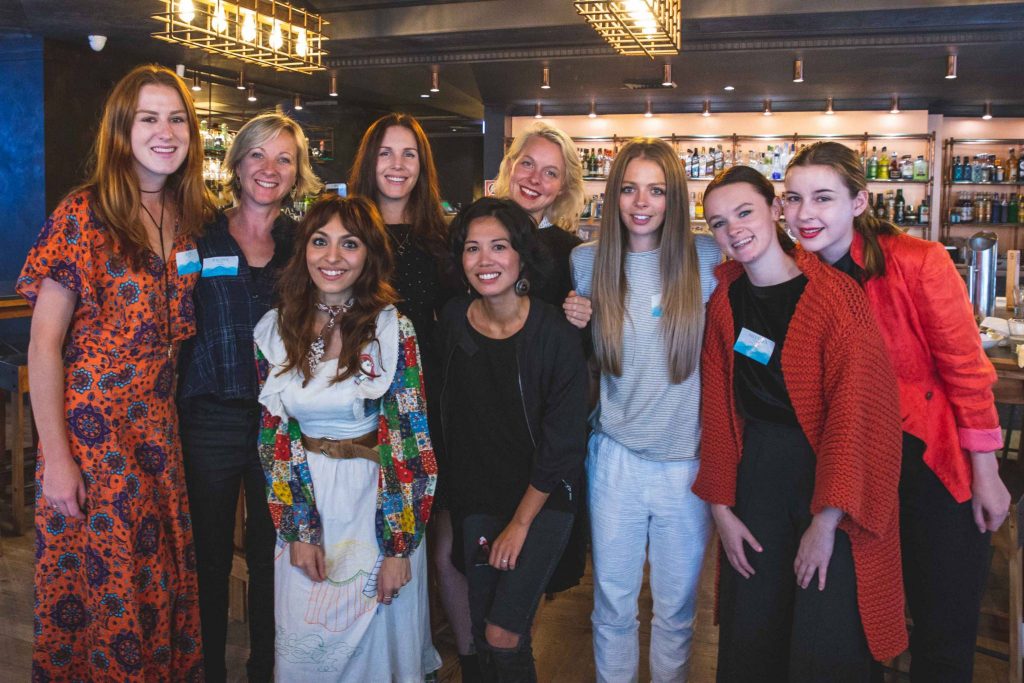
Find your tribe
The ethical and sustainable fashion and lifestyle influencer space is small. There are some who have been around before it became mainstream five to ten years ago, but for the most part, the majority of us have come into this space in the last two to four years.
There’s room enough for everyone to thrive but no room for treading on others to get to where you want. We are a community and we support each other.
In Australia, we’re a very small community, we all know each other and often attend the same events. These wonderful women have become my friends we because we genuinely like each other and love to hang out. Not because we’re part of comment and like pods on social media.
Do not reach out to fellow bloggers solely for the purpose of reciprocal social media follows. Reach out because you think you have something in common and could be friends.
If you’re Australian or from New Zealand check out these awesome ladies to help you start finding your local tribe.
- Sam Leigh – ecomono
- Kate Hall – Ethically Kate
- Nicole Lawrie – Urban Granola
- Natalie Shehata – Tommie Magazine
- Katie Sustainability in Style
- Olivia Burton – Sustainable Cat
- Jasmine Mayhead – Ethical Made Easy
- Jen Nini – Eco Warrior Princess
Whether you’re in Australia or anywhere in the world, one of the best places to find your tribe is Ethical Writers & Creatives, a group for bloggers, podcasters, vloggers, photographers, influencers and other creatives from around the world who work in the sustainable fashion and lifestyle space.
This group has been an amazing source of education and support and my go to for when I have a questions about brands, technical stuff, want to share a win or just have a rant. The Writers Group is also setting a standard within our industry for honesty and transparency from influencers. This includes the brands we work with and campaigning for fair pay for our work.
Search these hashtags on Instagram and Twitter:
- #ethicalfashion
- #sustainablefashion
- #ethicalwriters
- #ecofashion
- #ethicalblogger
These will help you find people who are also part of the movement and interested in the same things you are.
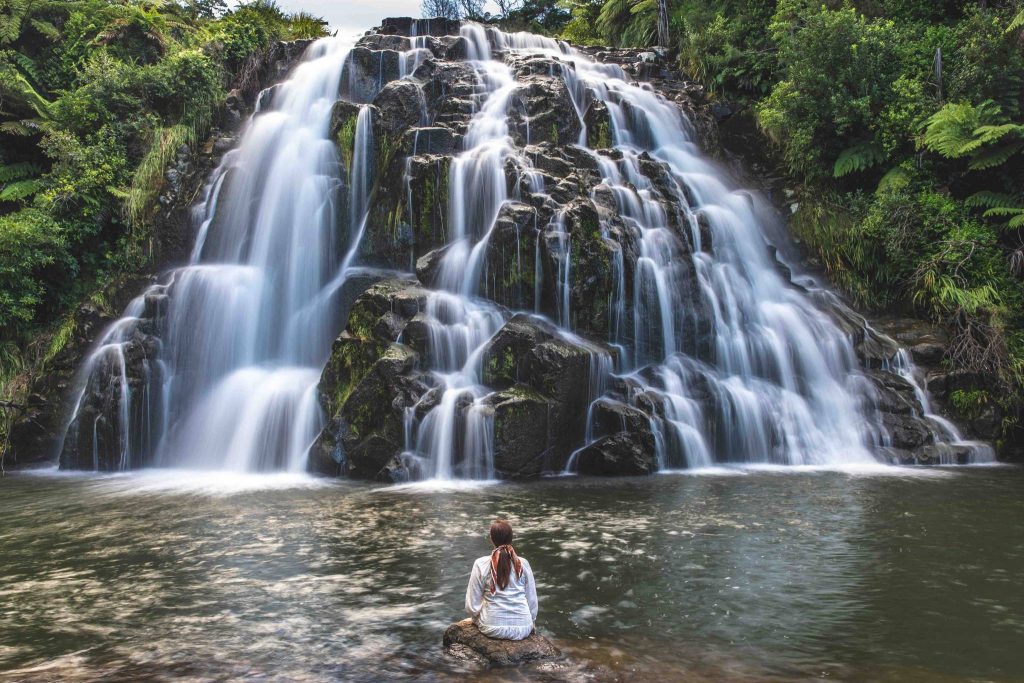
Decide what you want to create
Blogging and influencing come in many different forms. Are you a photographer, YouTuber, writer, vlogger? What platform do you want to use?
This site is my main platform and the one I invest most of my time in. Social media is a wonderful promotion tool but we don’t own it. Facebook could shut down our accounts without notice and there’s nothing we can do about it. I own my website which makes it far more valuable to me than my Instagram account.
Work out what kind of content you want to create and the type of business you want to grow from it and the choose your main platform to build it on.
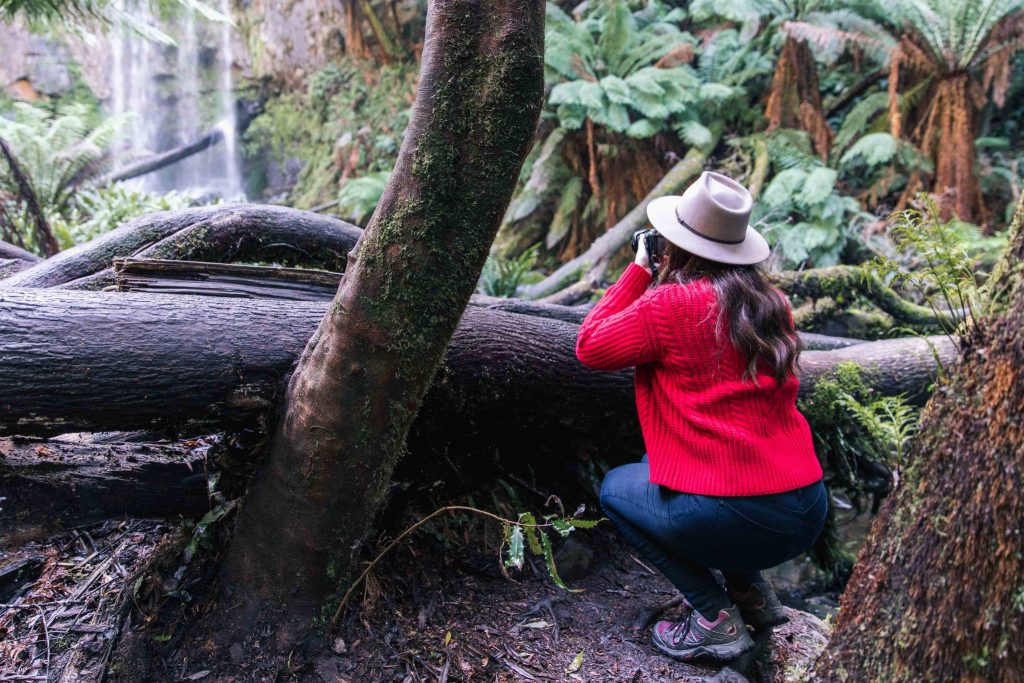
Share what you love
Which brings me to my next point. If you don’t create content you love, you will be more likely to pack it in when times get tough.
If you wouldn’t do it for free don’t try to make a living from it.
Blogging is a hard slog and you need to really like what you do enough to make it through the tough days. I love photography, creating videos and sharing travel content so that’s what I focus on. I often have to wake up as the ass-crack of dawn to take photos and I’m sometimes chained to my desk for five plus hours editing photos for a travel essay. But that’s ok because I enjoy doing it.
When it comes to writing or making YouTube videos, write or talk about the things you love and feel passionate about and don’t feel as though you need to cover a topic because everyone else is doing it.
Be unique, be you and your followers will love you for it.
Wearing many hats
Get used to doing everything!
You are now a writer, photographer, creative director, editor, marketer, IT consultant and social media expert. Being a blogger or influencer is not only about writing an article and hitting publish, you need to become in an expert in promotion and marketing yourself and your content as well.
If you find it’s all getting too much to manage, do what you can and outsource the rest. Bookkeeping is not something I am good at or wanted to learn so I have an amazing bookkeeper and accountant.
![]()
Have multiple sources of income
Blogging in the ethical fashion space is not all that lucrative because we promote mindful consumption.
The business model of traditional blogs and Instagram accounts works on partnerships with fast fashion brands encouraging followers to buy mass quantities of cheap clothing. You don’t want to do that. So, you’ll need to figure out where your income is going to come from.
Some people don’t mind doing advertising and brand sponsorships but others like to keep their platform ad free and use sites like Patreon to keep them running. You need to decide what you’re comfortable doing.
These are my sources of income
- Brand partnerships and sponsored content
- Affiliate links within articles where I make a commission from products I recommended
- Freelance writing for other websites and magazines
Other sources you can try
- Google Ads
- Patreon
- Selling products such as e-books, guides or courses
- Licensing your photos to stock imagery websites
- Other freelance work or consulting
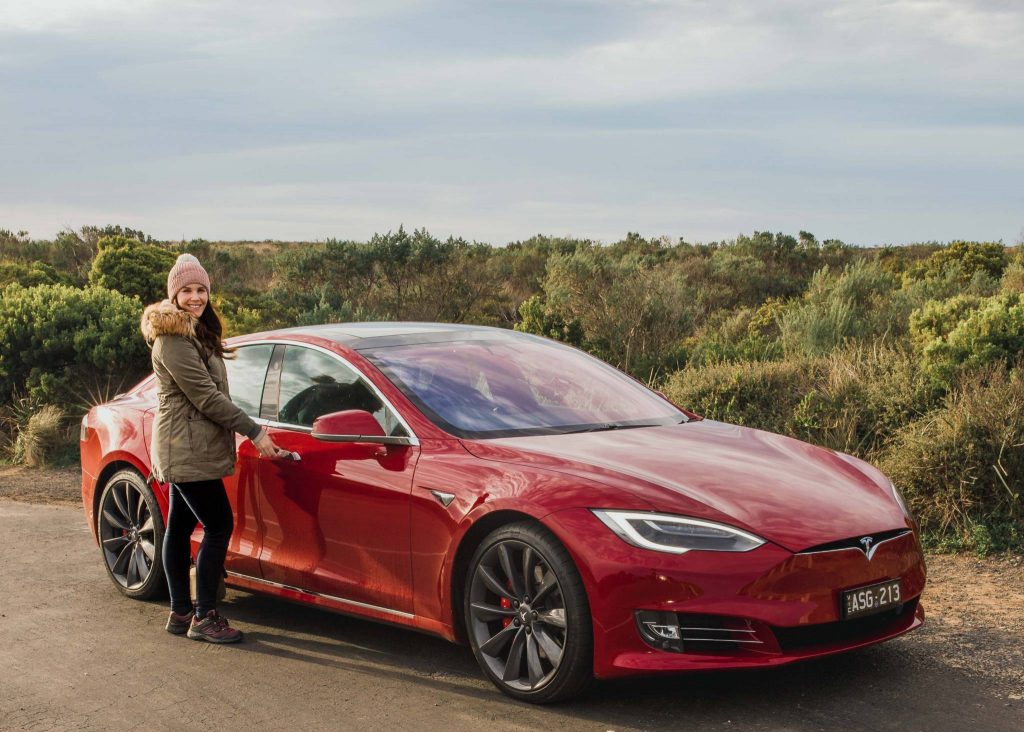
Brand partnerships
If you choose to work with brands it is so important to research them first. Our readers are smart and if you try to flog a product that is not ethical or sustainable or far outside what you usually promote, they will know and you will lose them.
You need to work out your values first and foremost.
Are you vegan? Will you promote leather? What is your stance on Bamboo? These are questions you need to ask yourself before saying yes to any brand partnerships.
Unfortunately there is no one standard to what is ethical or sustainable and jury is still out on some fabrics fibres and products. This is where you will need to decide if it’s something you are comfortable promoting, if will offer value to your blog and readers.
Still not sure? Ask your tribe for their opinions. Oftentimes they may have worked with a brand or product or read something about it and have valuable advice to offer. Don’t try and go at it alone, your tribe is valuable tool. Use them. Nicely of course!
Balance
You need to find balance with your content. If every second post is #sponsored, you will lose readers pretty fast. Make sure you are creating useful, engaging content for your readers. If you are open and genuine they won’t mind that you do the occasional sponsored post.
We publish four to six pieces of a content a week so I try and limit my sponsored posts to one a week on average. Sometimes there is overlap due to campaign timings which can’t be helped. I may go for several weeks without posting any sponsored content then share two or even three sponsored posts in the same week. Our readers don’t mind because we consistently share a steady stream of non-sponsored content.
All sponsored content on The Green Hub is clearly stated at the end of the post and on Instagram tagged with #ad, #sponsored or #TGHpartner. You have nothing to gain by not declaring paid partnerships and in Australia, it’s illegal not to do so.
Final thoughts
I think its important to share our knowledge and help each other grow. That way we can build a better industry, one that’s not shrouded in secrecy, which benefits everyone.
Are you fledgling blogger or influencer? Anything I haven’t covered? If you have any questions, leave a comment below.
Main image: Photo by Arnel Hasanovic on Unsplash
We are an affiliate partner of Bluehost and StudioPress

